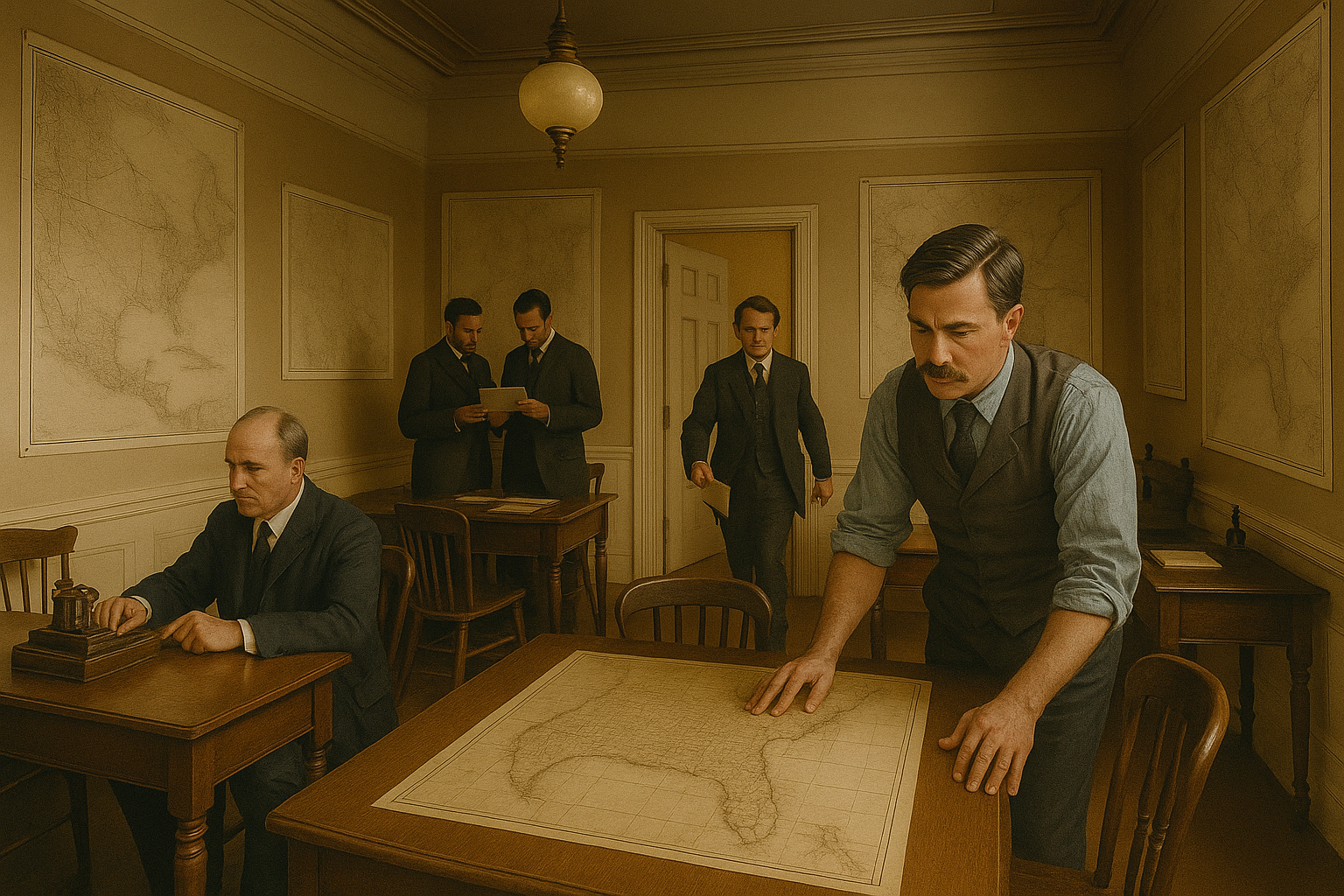Episode 1: Man of Merit
In 1895 New York, a young George B. Cortelyou moves through the bustling mailroom with precision and speed - sorting, recording, and dispatching with an almost musical rhythm. Though a Republican, he catches the eye of Democratic appointee Robert Maxwell, who chooses not to fire him in a partisan purge and instead offers Cortelyou a chance to stay. Impressed by his gifts, Maxwell brags about Cortelyou to his boss, Postmaster General Bissell, who, in turn, plays a prank on Maxwell by recommending Cortelyou to President Grover Cleveland - who needs an private secretary. Cortelyou is transferred to the White House and within weeks, becomes indispensable.
Cleveland, departing office, tells incoming President McKinley: “If you want things to run smoothly around here, keep Cortelyou.” McKinley does. At first, Cortelyou works quietly under John Addison Porter, McKinley’s official Private Secretary - a Yale graduate, poet, and self-proclaimed intellectual who views the daily mechanics of the office as a chore beneath his pedigree. Porter sees in Cortelyou a threat cloaked in deference: a tireless subordinate with no name but rising influence. Their early scenes carry a polite friction - Porter handing off tasks with clipped instructions, reminding Cortelyou, “This is merely administrative, Mr. Cortelyou. Not policy.” But Porter’s health wanes. As he retreats further from duty - delaying responses, missing meetings - Cortelyou picks up the slack and becomes the de-facto Private Secretary as war with Spain looms.
Under McKinely’s steady, paternal leadership, Cortelyou’s responsibilities expand. He’s shown managing White House operations during the Spanish-American War, helping track troop movements and coordinating press dispatches from a “war room” of wall-mounted telegrams and maps (precursor to today’s Situation Room). It is during this time he begins to hear of a cavalry officer, Theodore Roosevelt, whose boldness on the battlefield in Cuba captures the nation’s imagination. Back in the President’s office, the French Ambassador is concerned that his package will not get to the intended party in time. The President scoffs, “you saw me give it to Cortelyou, didn’t you?” The Ambassador looks to his right to lock eyes with the White House Chief Stewart, who nods knowingly.
At home, we meet Lilly, his devoted wife, and their children. We see Cortelyou relaxed as a family man. In an intimate moment, Cortelyou plays piano with one child on his lap - music as his quiet refuge and mode of expression. A passing comment about an upcoming presidential trip to Buffalo brings a flicker of unease to his face. Cortelyou has cancelled a public reception twice already, but the President is insistent he attend.
As the music plays, the screen intercuts: a young anarchist, Leon Czolgosz, isolated and grim, sits on a cot in a dim boarding house. He unwraps a revolver from a cloth and carefully loads it. Only piano music fills the silence. The camera lingers on his hands - methodical, precise and mirroring Cortelyou’s on the keys.
Meanwhile, during a quite evening at the White House, we are introduced to the First Lady, Ida McKinley, who is emotionally fragile, grieving the deaths of her two daughters, and beset by epilepsy. Cortelyou is a quiet presence of comfort to her, anticipating her needs and shielding her from distress - a duty that deepens his closeness to the McKinley household. Its clear that President McKinley is now virtually a second father to Cortelyou.
The episode closes with a parallel: Cortelyou carefully places his travel documents for the President’s upcoming visit to the 1901 Pan-American Exposition in Buffalo, NY - his expression marked by concern. Leon Czolgosz prepares for the same destination, casually tossing his train ticket into a small suitcase. Two men, headed to the same place. One tasked with aiding the President, the other intent on killing him.



